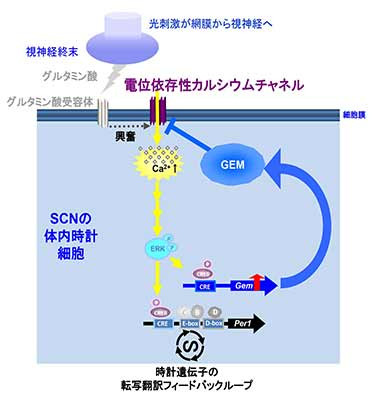治療成果を向上させるための早期介入のアプローチを提案 Scientists suggest an approach for early intervention to improve treatment outcome
2022-05-26 シンガポール国立大学(NUS)

シンガポール国立大学(NUS)がん科学研究所(CSI Singapore)の研究者らは、ブリガム・アンド・ウィメンズ病院(BWH)およびボストンのハーバード大学医学部(HMS)と緊密に協力して、HMAが癌胎児性タンパク質であるSALL4を活性化することを明らかにした。
研究は、2022年5月26日に科学雑誌『New England Journal of Medicine』で発表されました。
このことは、HMA治療を受けている患者さんにおいて、SALL4の発現レベルをモニタリングすることの重要性を示唆しています。SALL4のアップレギュレーションは、疾患の進行に影響を与え、より悪い診断と関連する可能性が高い一方で、SALL4経路を標的とした薬剤による早期介入を行う患者を特定する機会を提供し、それによって治療と患者の転帰を改善する可能性があります」と、Tenen教授は述べています。
<関連情報>
- https://news.nus.edu.sg/drugs-used-to-treat-blood-cancer-could-activate-sleeping-cancer-causing-gene/
- https://www.nejm.org/doi/full/10.1056/NEJMoa2119771
ハイポメチル化療法後のがん遺伝子の脱メチル化と発現上昇 Demethylation and Up-Regulation of an Oncogene after Hypomethylating Therapy
Yao-Chung Liu, M.D.,Junsu Kwon, Ph.D.,Emiliano Fabiani, Ph.D.,Zhijian Xiao, M.D.,Yanjing V. Liu, Ph.D.,Matilde Y. Follo, Ph.D.,Jinqin Liu, M.D.,Huijun Huang, M.D.,Chong Gao, M.D.,Jun Liu, M.D.,Giulia Falconi, Ph.D.,Lia Valentini, M.S.,Carmelo Gurnari, M.D.,Carlo Finelli, M.D.,Lucio Cocco, M.D.,Jin-Hwang Liu, Ph.D.,Adrianna I. Jones, B.S.,Junyu Yang, Ph.D.,Henry Yang, Ph.D.,Julie A.I. Thoms, Ph.D.,Ashwin Unnikrishnan, Ph.D.,John E. Pimanda, M.D.,Rongqing Pan, Ph.D.,Mahmoud A. Bassal, Ph.D.,Maria T. Voso, M.D.,Daniel G. Tenen, M.D.,and Li Chai, M.D.
New England Journal of Medicine Published:26 May 2022
Abstract
BACKGROUND
Although hypomethylating agents are currently used to treat patients with cancer, whether they can also reactivate and up-regulate oncogenes is not well elucidated.
METHODS
We examined the effect of hypomethylating agents on SALL4, a known oncogene that plays an important role in myelodysplastic syndrome and other cancers. Paired bone marrow samples that were obtained from two cohorts of patients with myelodysplastic syndrome before and after treatment with a hypomethylating agent were used to explore the relationships among changes in SALL4 expression, treatment response, and clinical outcome. Leukemic cell lines with low or undetectable SALL4 expression were used to study the relationship between SALL4 methylation and expression. A locus-specific demethylation technology, CRISPR–DNMT1-interacting RNA (CRISPR-DiR), was used to identify the CpG island that is critical for SALL4 expression.
RESULTS
SALL4 up-regulation after treatment with hypomethylating agents was observed in 10 of 25 patients (40%) in cohort 1 and in 13 of 43 patients (30%) in cohort 2 and was associated with a worse outcome. Using CRISPR-DiR, we discovered that demethylation of a CpG island within the 5′ untranslated region was critical for SALL4 expression. In cell lines and patients, we confirmed that treatment with a hypomethylating agent led to demethylation of the same CpG region and up-regulation of SALL4 expression.
CONCLUSIONS
By combining analysis of patient samples with CRISPR-DiR technology, we found that demethylation and up-regulation of an oncogene after treatment with a hypomethylating agent can indeed occur and should be further studied. (Funded by Associazione Italiana per la Ricerca sul Cancro and others.)


